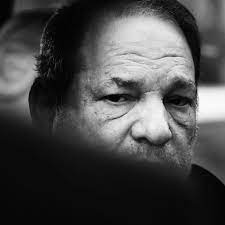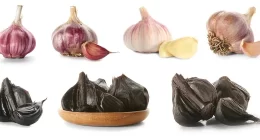Harvey Weinstein’s Secret Shame

Harvey Weinstein’s Secret Shame
Harvey Weinstein was airlifted to New York City in the winter of 1999 from the island of St. Barthelemy due to a mystery, life-threatening bacterial infection. Whatever it was, it embarrassed him so much that he entered a secret hospital with a false name, avoided contact, and spent almost all of his meager energy trying to prevent the press from even hinting at his hospitalization. He would claim for a few years that the close call with death, which left him with scars from a stomach operation and a tracheotomy, was the result of food poisoning.
But throughout the course of his rape trial in 2020, a picture of what may have very well happened to Weinstein started to take shape. Jessica Mann, one of his victims, stated that when she first saw him in the naked state, she “felt he was malformed and intersex.” Mann said, “He does not have testicles, and it appears that he has a vagina,” in addition to pointing out Weinstein’s bad hygiene, blackheads, and preference for golden showers. Her description is consistent with Fournier’s gangrene, a rare ailment that causes the skin inside the vaginal area to burn and shrivel and usually necessitates surgically removing the testicles. Later, full-frontal photographs of Weinstein were shown to the jury to support the testimony of Mann and other women who characterized his physicality. Although those photographs have remained sealed, the jury members seemed repulsed by what they saw, wincing and quickly handing the photographs to one another, as if they couldn’t stand to try or keep them.
Such visceral details abound in Ken Auletta’s forthcoming biography of Weinstein, Hollywood Ending: Harvey Weinstein and the Culture of Silence. The book, which is the first examination of the disgraced producer’s life, is about much more than just his physical appearance; it’s also a tale about enablers and familial drama, corporate wrongdoing, and apoplexic anger. However, after reading Auletta’s over 500 pages of thorough research, it is impossible to fail to be in awe of the fact that Weinstein is one of the greatest ways he is. What accounts for his explosive temper, ravenous appetite, and aggressive behavior? Auletta doesn’t offer any simple solutions and just devotes a few words to criminologists’ inability to infer or even analyze the reasons of sexual assault. However, within the book’s never-ending list of destroyed female bodies, information about Weinstein’s own body emerges as a hub and perhaps the source of all his harm.
If we characterize rape as an act committed by a monster rather than a person, we continue to propagate the myth that rape is a pervasively common offense committed by our brothers, fathers, sons, and husbands.
Criminal scientists all agree that early childhood is often when sexual deviation is first sown. Parents with sadistic tendencies frequently have a propensity to nurture sadists. Mariam Weinstein, according to Auletta, was a notorious screamer who humiliated her son in front of his friends. She would shout, “Do you really need to devour that bagel!” You are obese. Don’t consume that! She was generally important to a lot of people, although occasionally she criticized Harvey for his appearance.
Weinstein started to significantly gain weight in the early 1980s despite, or maybe because of, his mother, frequently devouring enormous portions of meals before asking for refills. He would lash out at waiters, according to Auletta, if the order for jumbo shrimp wasn’t huge enough. People positioned themselves away from him during meals because he ate quickly enough to send food projectiles across the table while he was speaking. When Weinstein and his first safety lawyer went out to lunch, Weinstein ordered a complete bowl of ketchup while double-fisting burgers and fries, retrieving one fry that fell down his shirt in an attempt to consume it. His appetite for oil and sauce was legendary. He was a fervent smoker as well, continuing to smoke in Disney’s halls after “No Smoking” signs were put up and consuming cartons of Marlboros every week.
It’s also possible that a pathological drive for food is an effort to fill a gap. Weinstein told his close pals that he believed he had been born ugly and that his life was an effort to make up for that reality. Weinstein promptly gave himself the nickname “the Gru,” for Gruesome. In a single unsealed statement that surfaced throughout his trial, he said, “To medicate, I comfort myself with poor food.” “I see dread in my head. My body is damaged. Veterans claim I have PTSD. Even his brother Bob seemed to concur, referring to Weinstein as “an empty soul acting out in every way he can to fill up that vacuum and hurt that will not go away.”
How would Weinstein’s embarrassment over his appearance have caused him to act in one of the greatest ways he did? When Weinstein attempted to assault Zo Brock, she was a young model. According to what she or he said, when she managed to resist his advances, Weinstein came sobbing out of the restroom. She told a Frontline documentary crew, “He said something in between his sobs I have never forgotten, and I never will for the rest of my days.” You don’t like me because I’m obese, I told you. Assistants and victims alike referred to his physique as disgusting during his trial. Mann testified that Weinstein “smelled like excrement and was simply nasty.” Even before the event in St. Barths, one of Weinstein’s aides said that she had never seen an erection from him despite the fact that he frequently strolled about naked in front of her. She thought he was impotent, which could account for the erectile dysfunction injections that numerous girls claimed he used before attacking them.
Weinstein was a sexual con artist despite all of his real authority. He would describe himself as an intercourse addict, although his historical history with women is more consistent with incel culture. He said that women had been denying him the right to have sexual contact, just like incels. Weinstein decided to promote an image of himself as a hedonist and a cad when his crimes were revealed, but these were charming smoke screens that he used to hide the truth. Weinstein was more addicted to something — like food, cigarettes, or rape — that might make him forget who he is than he was to actual sexual activity. Along with launching and disappearing, he also sought the elusive assurance that girls would approach him of their own free will. He “loved the idea that he was a Don Juan,” one of his victims reportedly told Auletta. He sought to avoid being perceived as a rapist. Weinstein maintained his innocence throughout the whole of his trial with a tone that felt more pathological than staged. After telling his victims that he thought their “friendships” could be revived, he sat stunned once more after being found guilty. But I’m innocent, he held off on saying. “I’m not guilty,” It is inconceivable that he could have thought this. But what if his true pathology was that he wanted to believe the sexual act was consensual despite knowing in his heart that it was not?
Me Too has changed norms, exposed some very effective individuals, and given tens of thousands of people the chance to speak up about long-suppressed realities since Weinstein ignited the movement into a global phenomenon over 5 years ago. It has not yet succeeded in reducing sexual violence: Only 13 cases of rape out of 1,000 are brought to a prosecutor, and only seven of those result in a felony conviction, according to RAINN. And within these tiny fractions, the victims’ situations continue to be extremely upsetting as they are still have to suffer questions regarding their clothing, blood-alcohol content materials, and memories. Rapes are not exceptional, but they are now prosecuted as such; in order for this to change, victims must have a reasonable expectation that their claims will be taken seriously. This calls for letting go of the myth that rape is the province of a small group of sociopaths with missing chips and accepting the more difficult reality that it’s often committed by individuals everyone knows, perhaps even people we love.
Weinstein makes the argument that people experience shame on a regular basis, not just malicious automatons. I make no motion to pardon him. I was the victim of an assault in my early 20s, and the idea that my attacker had motivations disgusts me. What I’m trying to say is that labeling him as a monster, an aberration, or completely different—disconnected from reality in a single sociopathy—allows sexual assault to proliferate. If we characterize rape as an act committed by a monster rather than a person, we continue to propagate the myth that rape is a pervasively common offense committed by our brothers, fathers, sons, and husbands. By refusing to think of rapists as persons, we are able to consider much fewer people to be predators, which in turn subtly challenges the statistic that one in six American women will be raped in their lifetime.
More than catharsis, publicity, and the slowly shifting standards, I would want more for victims. I’d really like for Weinstein to fear us as much as we feared him and for us to feel the same sense of entitlement to recompense for his physical anguish that he did. Weinstein may have a unique body, but his personality is completely unremarkable. Holding his humiliation in the open is intended to demonstrate his humanity. They’re all.
The post Harvey Weinstein’s Secret Shame appeared first on theancestory.com.








